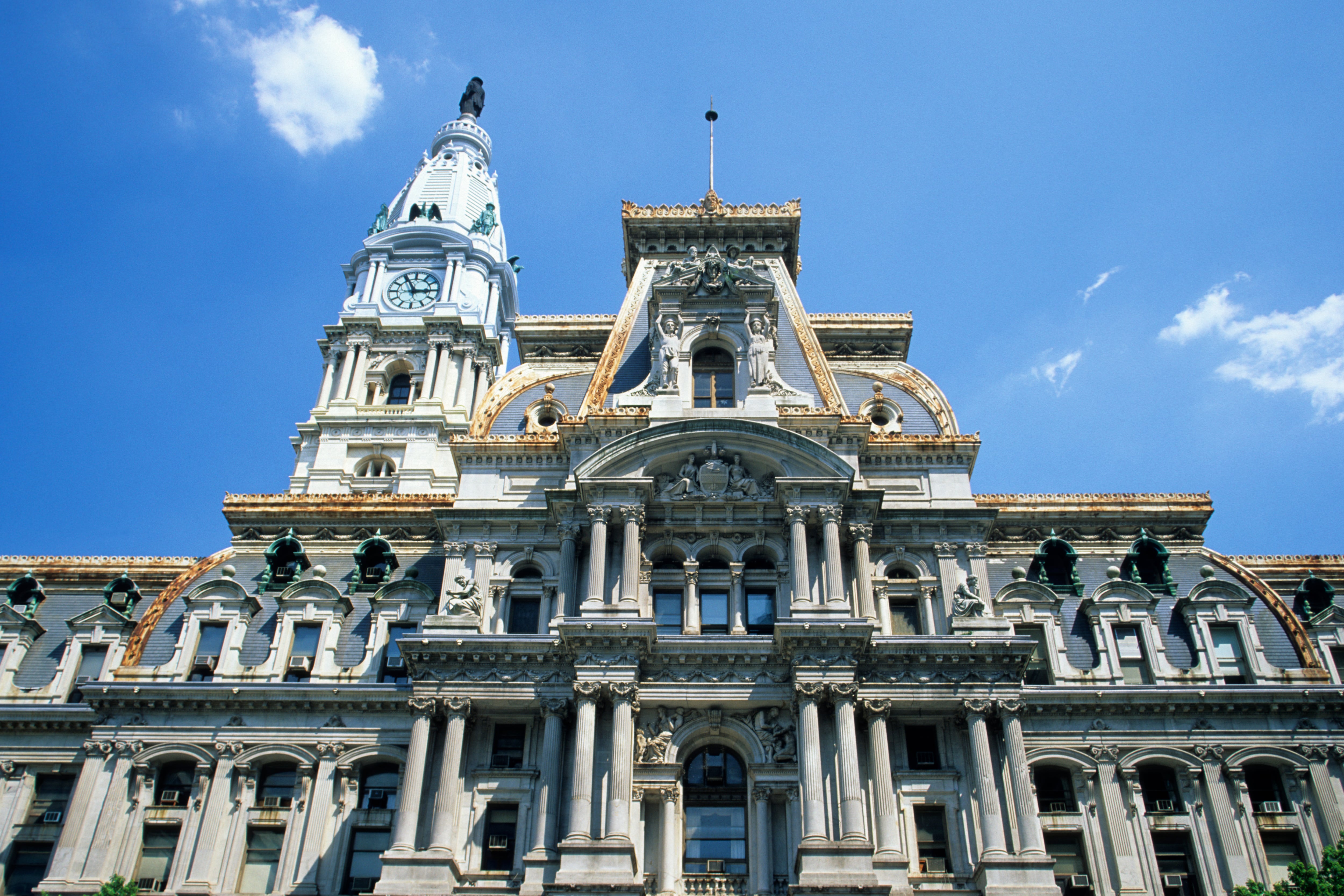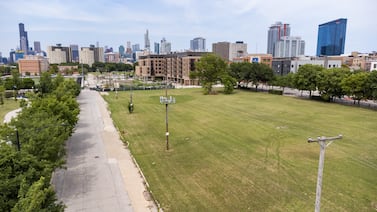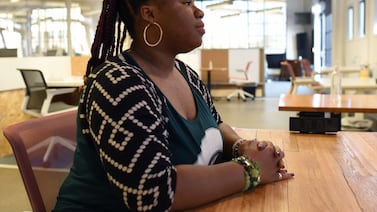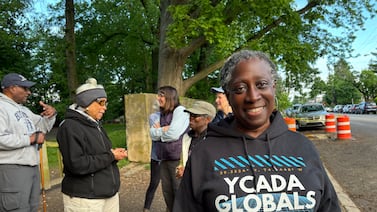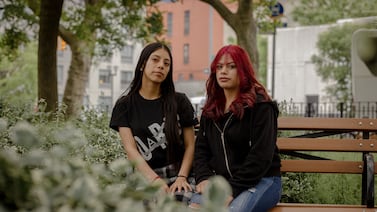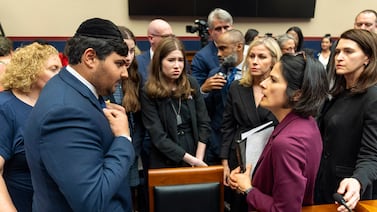Sign up for Chalkbeat Philadelphia’s free newsletter to keep up with the city’s public school system.
Following a heated interrogation by the City Council over charter schools, eight of Philadelphia Mayor Cherelle Parker’s nine nominees to the Board of Education are moving ahead. But the future of Joyce Wilkerson, the longest serving board member, remains in limbo.
The Council’s committee of the whole voted Friday to approve eight of Parker’s nominees, including current board President Reginald Streater. Those nominees will now head to a full council vote next Thursday.
In addition to Streater, Crystal Cubbage, Cheryl Harper, Whitney Jones, Wanda Novales, Joan Stern, Sarah-Ashley Andrews, and ChauWing Lam all received Council approval. Wilkerson’s nomination was deferred. The new board must be seated by May 1, but it doesn’t have to be a complete slate of nine members.
Leading up to the hearing, rumors circulated that Streater, as well as Wilkerson, would not receive enough votes because of their recent votes in opposition to several new charter schools. Streater and the rest of the nominees, barring Wilkerson, ultimately earned a unanimous voice vote from those council members present to move ahead. However, the overall tenor of the councilmember’s questions and comments signaled many of them would like to see more charter schools — specifically Black-led charter schools — in the city.
After the meeting, the board nominees made it a point to say that they were sticking together as a slate.
“We have unfinished business,” said Streater, as Wilkerson stood beside him, adding that Parker “picked the nine people who she thought could get the job done.”
Wilkerson declined to comment on why she thought there was opposition to her nomination.
Council President Kenyatta Johnson gave no reason for delaying the vote on Wilkerson, and did not speak with reporters after the hearing concluded. But based on council members’ questions and comments, several members seemed to want to send a message regarding the board’s charter school policies.
They apparently focused on Wilkerson since she led the board from 2018 until 2022; during that period, no new charter schools were approved. She was also chair of the School Reform Commission for two years before that when the district was still under state control.
The school board is the sole authorizer of charter schools in the city.
After a six-and-a-half-hour hearing, Isaiah Thomas, the chair of the council’s education committee, told reporters that “we felt like it was best to continue dialogue” around Wilkerson’s nomination but did not give a reason for the opposition. “Once we have more of a consensus, I think that you’ll see a decision being made,” Thomas said.
In addition to the intense questioning about charters, returning board members were grilled about the “deplorable” condition of school buildings and the absence of a promised school facilities plan from the school district. They were also pressed about the new, lottery-based special admissions policy that has contributed to a surge in empty student seats in many of the district’s top schools.
Thomas led a particularly pointed line of questioning directed at the four incumbent board members about what he alleges is a discriminatory charter authorization process that’s resulted in the district closing an outsize number of Black-led charter schools in recent years.
Of the charter schools that board has voted to close, Thomas said 80% of those were founded or led by Black people, even though they comprise only about 25% of the 82 charters in the city.
“Those numbers aren’t racist?” Thomas asked during a particularly intense exchange with Streater.
In fact, from 2010 to 2021, the district’s governing body voted not to renew or revoke the charters of 13 charter schools. Eight of those — a little over 61% — were Black-led.
Political divisions over the treatment of Black-led charters in Philadelphia came to a head last year following the release of an independent report examining alleged bias in the charter school approval process.
The report determined that there was no intentional bias in the authorization process. But the authors did point to inherent flaws in the system that resulted in Black-led charter schools being non renewed or closed in “greater numbers than their peers.”
Several councilmembers and public speakers on Friday chastised the board for what they perceive as a failure to address any of the systemic flaws noted in the report.
Councilmember Anthony Phillips outright asked the board members: “Will you champion public charter schools as vital partners in creating a system of great schools that better serves Philadelphia students and families?”
None of the nominees answered that question directly. But board member Lam said: “Every charter decision made is a difficult one,” noting that while public dollars fund charter schools, the district does not manage them.
Councilmembers hold considerable funding power over the district, determining how much of city tax dollars are allocated to schools. The Board of Education has no taxing power of its own.
Parker never said explicitly during the campaign whether she favored the creation of more charter schools. But her close ties to charter consultant Dawn Chavous — who is married to Council President Johnson and served as chief of staff to state Sen. Anthony Williams, one of the state’s leading charter proponents — has raised eyebrows among traditional public school supporters.
Chavous also serves as spokesperson for the African American Charter Coalition, which first leveled the allegations of racial bias against the school board regarding Black-led charters.
Several public speakers expressed their support for Wilkerson including Loree Jones, the district’s former director of external affairs. She praised Wilkerson’s “brilliant competence and solid balanced approach” to decision-making.
Asked if Wilkerson’s nomination would be considered before the May deadline, Thomas said, “I’m not sure. I mean, negotiations are unpredictable.”
Carly Sitrin is the bureau chief for Chalkbeat Philadelphia. Contact Carly at csitrin@chalkbeat.org.
Dale Mezzacappa is a senior writer for Chalkbeat Philadelphia, where she covers K-12 schools and early childhood education in Philadelphia. Contact Dale at dmezzacappa@chalkbeat.org.
